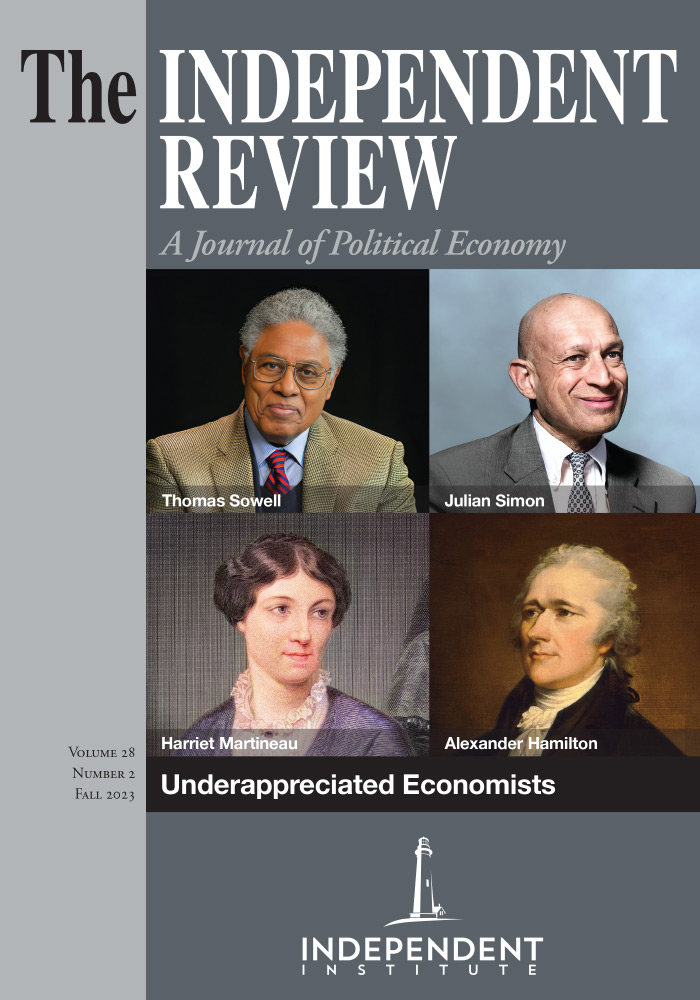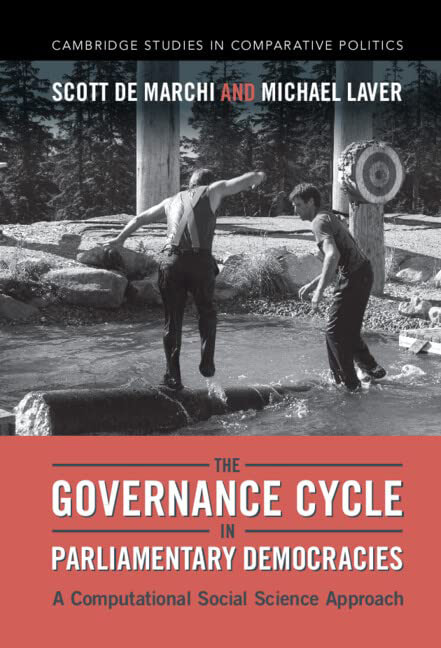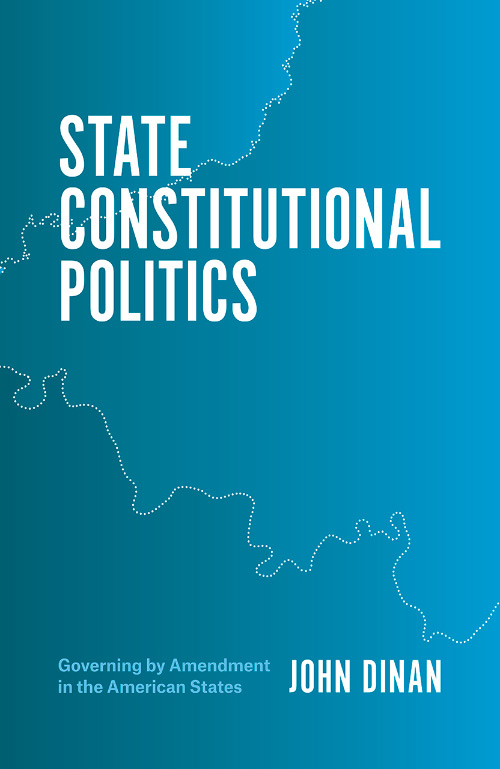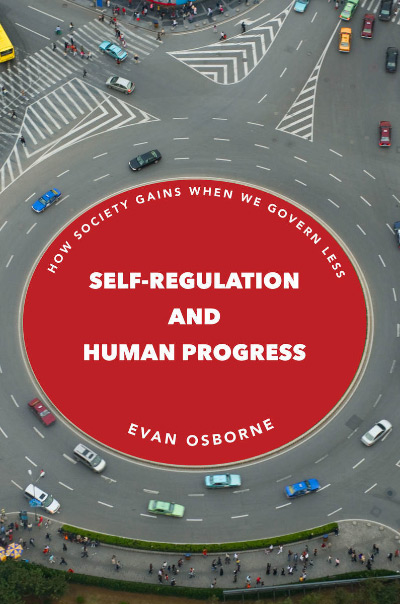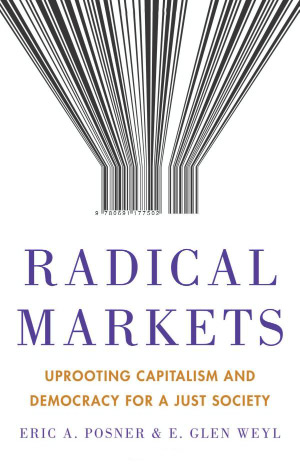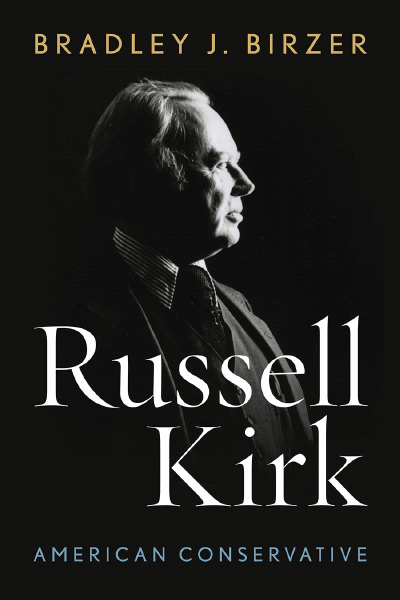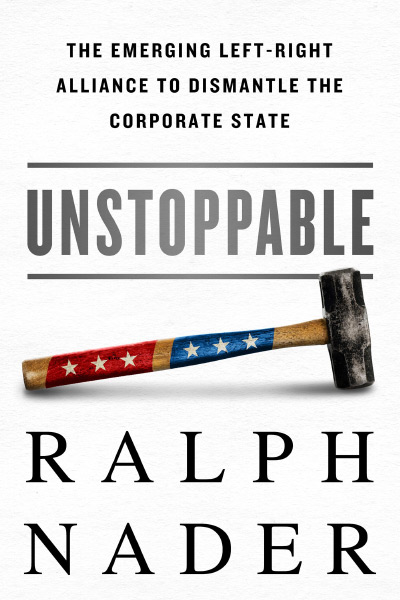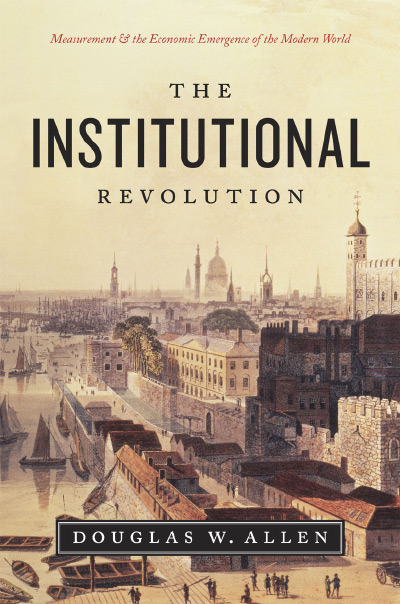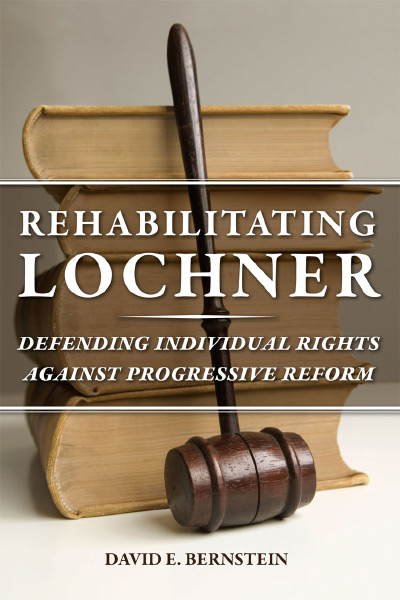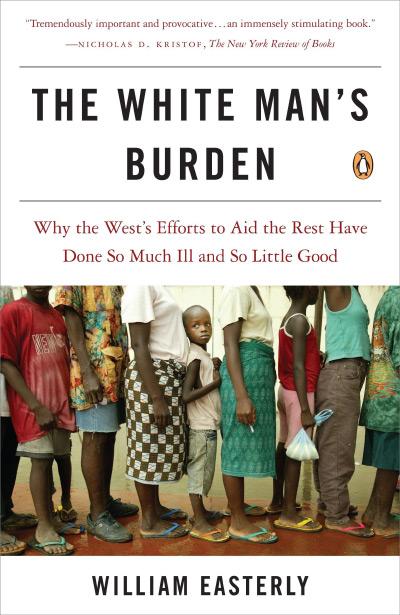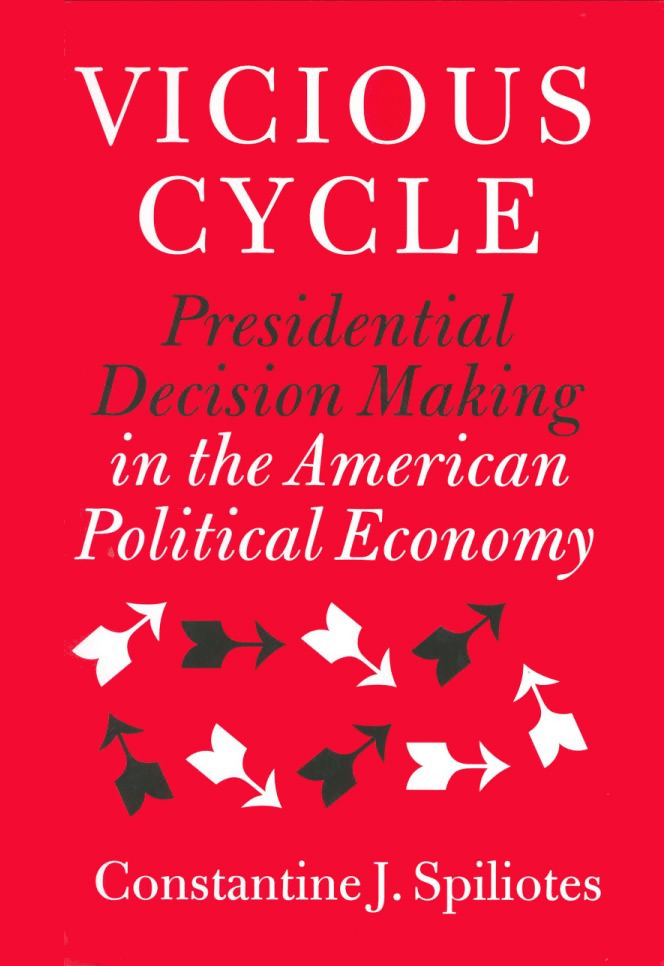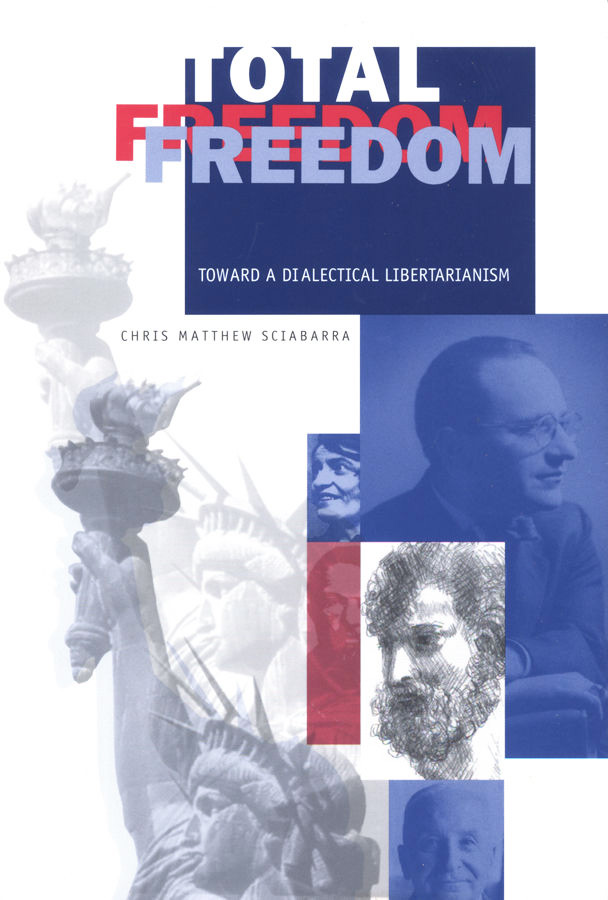The essence of voluntary exchange is that any of the parties can walk away and do something else or do nothing. Bargaining, in the sense of identifying, negotiating, and implementing mutually beneficial cooperative agreements, is the core of rational choice theory. The “market” version of rational choice theory—economics—should be “about” bargaining because, as I have argued repeatedly (e.g., Michael Munger, “The Good, the Wise, and the Just,” American Institute for Economic Research, October 27, 2021), every agreement or contract logically requires a disagreement about value.
One of the founders of Public Choice, James Buchanan, argued that one should judge the quality of any economics textbook by the page number on which the indeterminacy of bargaining is mentioned (James M. Buchanan, interviewed by H. Geoffrey Brennan in The Intellectual Portrait Series: A Conversation with James M. Buchanan [Indianapolis, Ind.: Liberty Fund, 2021]). The correct answer is “the first page”; quality goes down from there.
Bargaining in politics is much more complicated because the dimensions of value are potentially manifold. The “political” version of rational choice theory should embrace that complexity and likewise be “about” bargaining and the indeterminacy of agreements. To be fair, there is an important Public Choice tradition, arising from the work of Kenneth Arrow and William Riker, that would highlight the generic contingency or, in the absence of institutions, the literal impossibility, of predicting outcomes in settings that are multidimensional or in which the preferences of a substantial proportion of the choosers are not “single-peaked.” This problem was forcefully stated by Gordon Tullock when he asked, “Why so much stability?” (Gordon Tullock and Geoffrey Brennan, “Why So Much Stability,” Public Choice 37, no. 2 [1981]: 189–202).
The simple answer is that “institutions,” or the rules of the game chosen by participants to narrow the set of alternatives and produce outcomes predictably and quickly, are of great value to a society. The fact that different institutions produce different outcomes is a problem, of course, because then the incoherence of choices over alternatives will be “inherited” in the form of an incoherence over institutions because participants can look down the agenda tree and backward induce preferences over institutions.
But the “game,” or stylized strategic interaction with substantial rewards for enforceable cooperative arrangements, is repeated. That fact is substantively important for the survival of the society because participants want the rule of law and order to survive, and they recognize the value of reaching an agreement that everyone accepts. The simplest version of this argument was intuited by Thomas Hobbes in Leviathan, of course: even a bad ruler is better than chaos and constant war, where war might be nothing more than constantly preparing to defend one’s turf without actually fighting. But most collections of people “choosing in groups” (Michael Munger and Kevin Munger, Choosing in Groups [New York: Cambridge University Press, 2015]) can do much better than the Hobbesian absolute monarch. As Geoffrey Brennan and James Buchanan point out in The Reason of Rules (Indianapolis, Ind.: Liberty Fund, 2001), choosing a constitution or accepting “common law-like” norms that have become conventional through repetition can “constitute” a government, even if no one specifically consents.
From a theoretical perspective, there is a paradox: it is impossible to make a determinate choice among rules, but almost any rule is better than the chaos, delay, and possible revolutionary violence that results from a breakdown of governance rules that are accepted as legitimate. The importance of the background threat of violence as a mechanism for making almost any existing governance system self-enforcing has been the subject of important work in political science (see Douglass North and Barry Weingast, “Constitutions and Commitment: The Evolution of Institutions Governing Public Choice in Seventeenth-Century England,” Journal of Economic History 49, no. 4 [1989]: 803–32, and work that cites it). But since such nonnegotiated-but-stillbinding institutional conventions exist, and survive, precisely to limit opportunities for ex post recontracting and renegotiation of bargains, can my earlier claim about the centrality of actual intentional bargains be sustained?
The answer is yes, because at the core of governance, at least of democratic governance, is the constant opportunity for renegotiation a orded by elections. Elections are an exogenous readjustment of the relative strengths of di erent coalitions in the legislature, through nonviolent institutionalized takeovers of power. In “first past the post” systems, with two effective parties, this can be a knife-edge phenomenon, with the power to organize the legislature being a knife-edge of majority status. But the real action for bargaining theory lies in the process of forming government in parliamentary democracies, with some form of proportional representation.
Or ... so one might think. As Scott de Marchi and Michael Laver show in their new book, The Governance Cycle in Parliamentary Democracies, in fact game theorists in political science have, by unspoken but nearly universal consensus, avoided taking up the actual problems, and theoretical promises, of analyzing real bargains and adopted a grossly simplified and strategically impoverished version of the problem that would seem laughably abstract to political insiders.
The cover of the book is clever, showing two men engaged in the partly competitive, partly cooperative sport of logrolling. Large trees were easy enough to fell and—being wood—reasonably easy to float down a river. However, moving a log from where it was felled to the river, where it could be tied into rafts and transported, was extremely hard work and required many hands. But this was a peak-load problem because it was expensive to attract a large group of sturdy workers to the site where the logs had been felled but then have them work for only two days to roll enough logs to the river, where the rafts were constructed.
An obvious solution was for smaller crews, who could handle the felling and the rafting on their own, to logroll cooperatively: today we will roll crew A’s logs to the river, tomorrow crew B’s, and so on. There is a holdup problem, of course, since the first crew might break its agreement and say “So long, suckers!” But since this business was repeated annually, and indefinitely, the crews could trust one another and punish cheaters and shirkers by word of mouth and reputation.
The first application of the metaphor of logrolling to politics appears to have been made by Davy Crockett (“An Account of Col. Crockett’s Tour to the North and Down East,”). Crockett is recorded as having said, “My people don’t like me to logroll in their business, and vote away pre-emption rights to fellows in other states that never kindle a fire on their own land.” The metaphor is now common for the custom of “exchange” in voting, in a setting where there are multiple dimensions and di erent values for di erent participants: I’ll vote for the legislation you really want, and you’ll vote for the legislation I really want, and we’ll both get our first-best outcome at the small price of accepting a law we would have opposed but don’t care much about.
In The Calculus of Consent (Ann Arbor: University of Michigan Press, 1962), James Buchanan and Gordon Tullock argued at length that difference in values is the very essence of bargaining and that logrolling was the means by which otherwise unobtainable mutual gains could be captured. The problem that created a setting in which no equilibrium in voting existed could be converted to an equilibrium by bargaining, if by “bargaining” we understand the exchange of multiple dimensions of value resulting in an overall Pareto improvement of participants in the bargain.
Buchanan and Tullock were wrong about this claim, however: far from creating a setting in which equilibrium exists, logrolling can transform a stable “issue by issue” setting in which equilibrium is achievable into a multidimensional quagmire (Munger and Munger [2015] discuss this literature). Logrolling is always a “divide the dollar” game, with no equilibrium.
And yet ... and yet. Tullock and Brennan (1981) really were right: actual legislative processes are much more likely to be stable than to exhibit wild, chaotic fluctuations. The standard “answer” is that “institutions did it,” as I have described here. In the United States, this explanation might work for the House of Representatives, but the rules of the Senate do not actually create a setting where an equilibrium outcome is required by institutions. Famously, the answer is norms, or “courtesy,” as Mr. Dooley tells us:
Aside fr’m th’ arjoos duties iv lookin’ afther th’ prisidint’s health, is th’ business iv th’ vice-prisidint to preside over th’ deliberations iv th’ Sinit. Ivry mornin’ between ten an’ twelve, he swings his hammock in th’ palachial Sinit chamber an’ sinks into dhreamless sleep. [At times] th’ vice-prisidint rises fr’m his hammock an’ says: Th’ Sinitor will come to ordher.’ ‘He won’t,’ says th’ Sinitor. Oh, very well,’ says th’ presidin’ officer; he won’t,’ an’ dhrops off again.
It is his jooty to rigorously enforce th’ rules iv th’ Sinit. There are-ah none. Th’ Sinit is ruled by courtesy, like th’ longshoreman’s union. . . . It wud be a breach iv Sinitoryal courtesy f’r him to step down an’ part th’ Sinitor fr’m Texas an’ th’ Sinitor fr’m Injyanny in th’ middle iv debate undher a desk on whether Northern gintlemen ar-re more gintlemanly thin Southern gintlemen. shuddent wondher if he thried to do it if he was taught his place with th’ leg iv a chair. (Finley Peter Dunne, Dissertations by Mr. Dooley [New York: Harper, 1906]; spelling as in original, emphasis added)
That’s really quite good. The vice president’s job is to enforce the rules of the Senate. But there are none because the Senate is ruled by norms. It’s not really surprising that this kind of governance occasionally breaks down; what’s surprising is that it ever works at all.
Or perhaps not. As de Marchi and Laver rightly point out, the generic prediction of the first wave of social choice theory is for “generic instability”; that’s simply not observed, however, in the actual world of legislatures and governance. The second wave of social choice theory focused on “institutions” (see Kenneth Shepsle and Barry Weingast, “Structure-Induced Equilibrium and Legislative Choice,” Public Choice 37, no. 3 [1981]: 503–19, and work that cites it). The third wave refocused (correctly, to be fair) on bargaining and the ability of negotiation models to produce consistent and persistent predictions.
That should be all to the good, given that bargaining is (or should be) the focus of rational choice theory. But the form of bargaining being modeled, according to de Marchi and Laver, was stylized and largely unconnected to real-world processes of coalition formation. The set of assumptions—namely, a single formateur, or entity empowered to make a single “take it or leave it” proposal for the allocation of ministries or power in the collation, with a reversion point of chaos, not further negotiations—would have been laughably unfamiliar to anyone who had spent even twenty minutes in a legislative building.
But that assumption generated predictions of equilibrium, which was the goal, because equilibrium and not chaos was what was being observed. Since this (nonsensical) assumption generated the desired prediction, that meant the dominant model was correct. Sure, it sounds dumb when I put it that way, but the level of exaggeration is not large. Seriously, that’s really how the problem was approached by game theorists.
The problem is that this is not the way actual politics, conducted by experienced, motivated professionals in a setting with high stakes, is carried out. As de Marchi and Laver put it, in a rather salty description:
We do not think it is in any way reasonable to assume the most seasoned and sophisticated politicians in the business, doing the thing they care most about, sit quietly on their hands waiting for the talking stick to be passed in their direction. In contrast, we believe that—whether this happens in the cold light of day or in the dark shadows of what we think of as “backstage”—no senior politician can be banned from making any proposal to anyone at any time. (p. 2)
The alternative approach advocated, and then presented, by de Marchi and Laver is to highlight the significance of two background conditions: complexity of the strategic context and the effectiveness of optimal conventions that, though not provably optimal through the technique of backward induction and subgame perfection, nonetheless work well and, once established, are likely to be honored.
The case would be stronger if de Marchi and Laver took more advantage of their obvious precursors and intellectual allies David Hume, Friedrich Hayek, and Thomas Schelling (to be fair, they do cite Schelling). In any case, the conclusion is persuasive: in complex systems, no individual possesses the information about mapping actions into outcomes that would be required for the process to be “rational.” But the system, using relatively salient and simple rules, exhibits an emergent order that persists, and constitutes a predictable framework for decision making.
Strikingly, applying this approach to actual coalition formation contexts in parliaments shows that (1) there are in fact a large set of circumstances in which, far from predicting chaos, the theory identifies “Condorcet winning” configurations of party power allocation, and (2) these configurations or coalition bargains are frequently, and consistently, discovered and implemented by actual political agents.
An impressive lagniappe is the prediction of bargaining duration that falls out of the model the authors specify. The likelihood (I would say “transaction cost,” but then of course I would) of finding a Condorcet winner is dependent on the complexity of bargaining setting. Overall, there are three specific empirical questions with which the authors confront the theory:
- Which government—a particular configuration of parties, with specific portfolios of power—forms after an election?
- How long do the parties negotiate and bargain before implementing the new government?
- What is the duration or “life” of that government?
From my perspective, one of the most interesting and important aspects of this book is that it resurrects logrolling from the intellectual grave to which it was prematurely assigned. In fact, just as Tullock intuited, side payments in the form of allocating power are votes that can help solve bargaining impasses, and the “impossibility” result is just a problem to be solved by institutions. Experienced, motivated agents who have diverse interests can use bargaining to create a setting in which “politics as exchange” is put back at the forefront of our understanding of politics. I recommend The Governance Cycle highly.
| Other Independent Review articles by Michael C. Munger | ||
| Summer 2024 | Secret Government: The Pathologies of Publicity | |
| Spring 2024 | Following Their Leaders: Political Preferences and Public Policy | |
| Spring 2024 | The Origins and Evolution of Consumer Capitalism; Crack-Up Capitalism | |
| [View All (80)] | ||

